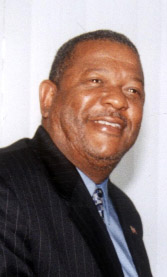BRIDGETOWN, Barbados, CMC – Antigua & Barbuda Prime Minister Baldwin Spencer said a rescue mission was needed to save the game in the Caribbean and expected Caribbean governments to play a leading role in moving the process forward.

Spencer is chairman of the CARICOM Sub-Committee on Cricket said regional governments, as well as the West Indies Cricket Board, the players, and the society at large, including the private sector, has to share the blame for the steep decline of the game in the region.
“As I see it, everybody has to accept some blame because initially the understanding was that there would have been certain [legacy benefits] that would arise from the 2007 World Cup [staged in the Caribbean], and we needed to package it in such a way at the very beginning to bring benefits,” he told the Barbados Sunday Sun newspaper during a recent visit to New York.
“We knew what was going to happen, not only at the domestic level, but that we must take it to a regional basis. At neither level have we been able to make a proper effort to do something about it.”
Spencer admitted he was disappointed with the state of the game, the bickering between the West Indies Cricket Board and the West Indies Players’ Association, as well as the string of feeble results on the field which have impacted on the number of matches in which West Indies are engaged.
“As it stands now, we have to go on a rescue mission,” he said. “Let’s face it. Cricket is one of the things that have united the people of the Caribbean.
“We love our cricket and it means a lot to us. Cricket is not just about playing the game on the field. As C.L.R. James said, it goes beyond the boundary. It impacts on the psyche of West Indies people.”
Spencer said however, he was not advocating regional governments get involved in the running of the game.
“We, as governments, don’t want to be running the day-to-day affairs of cricket, not at all,” he said. “But I feel the governments, based on the investments and the interest of the people, must get West Indies cricket on a sustainable path. As it stands now, we are spinning top in mud as far as performances go.”
Spencer disclosed that the PMSC held a meeting in Barbados around the same time as the CARICOM-China Forum in Trinidad.
“Arising out of that meeting, we said that cricket is owned by the people of the Caribbean,” he said. “It is not the board or the players, but the people and so on. When we have gotten their positions, we will examine the issues between the players and the board.
“But on a more comprehensive basis, we have to decide what we are going to do about the state of our cricket as it relates to its management and governance issues.”
Spencer said the PMSC has another critical meeting scheduled for later this month, which he described as very important.
“Our future depends on how we address this cricket problem,” he concluded.
